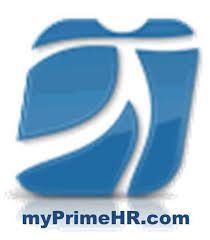
A standard tool for various businesses, particularly in the Human Resources department is artificial intelligence (AI). AI in HR has evolved over the past few years. It started from an emerging to a mainstream technology, and now, it doesn't appear to be slowing down. According to a poll by Eightfold AI, 92% of HR directors intend to boost their use of AI in at least one HR-related area.
While some HR leaders have fully embraced AI and other cutting-edge technology, on the other hand, incorporating AI into HR and automating some aspects of the hiring process is still not widely accepted by many.
Some people might regularly utilize AI in HR and hiring processes. Some might altogether avoid the concept of AI out of concern that the development of automated technologies will result in their unemployment.
Regardless of their stance on the issue, all HR professionals must know these AI-related facts.
Efficient and Simplified Decision-Making.
AI has the potential to revolutionize overloaded HR departments. A few advantages of AI are:
- Automated Processes: By automating time-consuming, high-volume operations such as screening resumes, AI in HR can help save time and lessen stress.
- Job and Skill Matching: Some AI systems assists in matching the most suitable applicant for the job, which can enhance the hiring quality and possibly improve retention.
- Improved Decision-Making: AI can analyze data that assists HR in making judgments about hiring and other choices.
Consider your needs carefully and test several AI solutions before making a final choice. When it comes to the tools that a firm needs, there are many distinct types, and remember that there's no one size fits all.
It Has Hiring Restrictions
Even so, there are still issues with AI. There is a chance of discrimination when utilizing AI to make recruitment decisions because AI has learned to acquire some human biases.
As an effort to reduce bias, some states have already imposed strict limitations on the usage of AI in employment. A new law in New York mandates that companies examine their automated decision-making processes for recruitment and notify job applicants or current employees at least ten (10) working days in advance before using it.
It's wise to research laws and regulations before integrating AI into any process because as HR gets more mainstream, other areas might implement rules and limitations.
Consider Ethical Concerns.
The White House presented a blueprint for an "AI Bill of Rights" on October 4. The bill mentioned above attempts to provide instructions on how to avoid bias and discrimination when using AI and ensure that information is secured
Regarding AI, the report outlines five areas where Americans are protected:
1.) System security and efficiency, 2.) Algorithmic discrimination
3.) Data security, 4.) When an automated system is used, immediately tell and clarify, and 5.) Availability of human replacements when appropriate
Additionally, it lists the "sensitive domains" of work that require more privacy and protection for data. The blueprint suggests using sensitive job information only when essential and making everything else optional. In a nutshell, keep sensitive information as secure as you can, both internally and outside.
Read more...
Events
aclt on its 24th Year! Nationwide simulataneous celebration starts on August 8, 2020.
Useful Links
Our Contacts
1002 Rufino Building
6784 Ayala Avenue, Makati
Makati: (+632) 844 9722
